Thinking about starting an online store, but not sure which platform is right for your business?
With so many options, Shopify, WooCommerce, Magento, Wix, and BigCommerce, it can feel overwhelming. Each platform comes with its own set of strengths, limitations, and ideal use cases.
The choice of platform is more than just a technical decision. It affects how customers interact with your brand, how easily you can scale, and how much flexibility you have to customise.
Pick the wrong one, and you might face costly redesigns or constant limitations. Choose wisely, and your e-commerce site can grow seamlessly alongside your business.
I’ve personally worked with a wide range of e-commerce platforms—Shopify, WooCommerce, Wix, Magento, and BigCommerce—across different industries. From small businesses just starting out to established brands scaling their operations, I’ve seen how each platform performs in real-world scenarios.
Based on my experience, here are the Top 5 E-commerce Platforms and the types of businesses they are best suited for:
-
Shopify – Best for startups & growing brands wanting simplicity + scalability.
-
WooCommerce – Ideal for businesses already using WordPress & needing flexibility.
-
Wix – Great for small businesses or creative sellers who want ease of design.
-
Magento (Adobe Commerce) – Perfect for large enterprises needing advanced customisation.
-
BigCommerce – Strong for mid to large-sized businesses with multi-channel selling needs.
Shopify: Simple, Scalable, and Mobile-Friendly
Shopify has been one of my go-to platforms for many projects, and for good reason.
Shopify is one of the most popular e-commerce platforms globally, known for fast deployment, professional templates, and mobile-first design.
It’s ideal for businesses that want to launch quickly without sacrificing design or functionality. Here’s how our projects leveraged Shopify to meet diverse business needs.
Project 1: Farm Foods Market
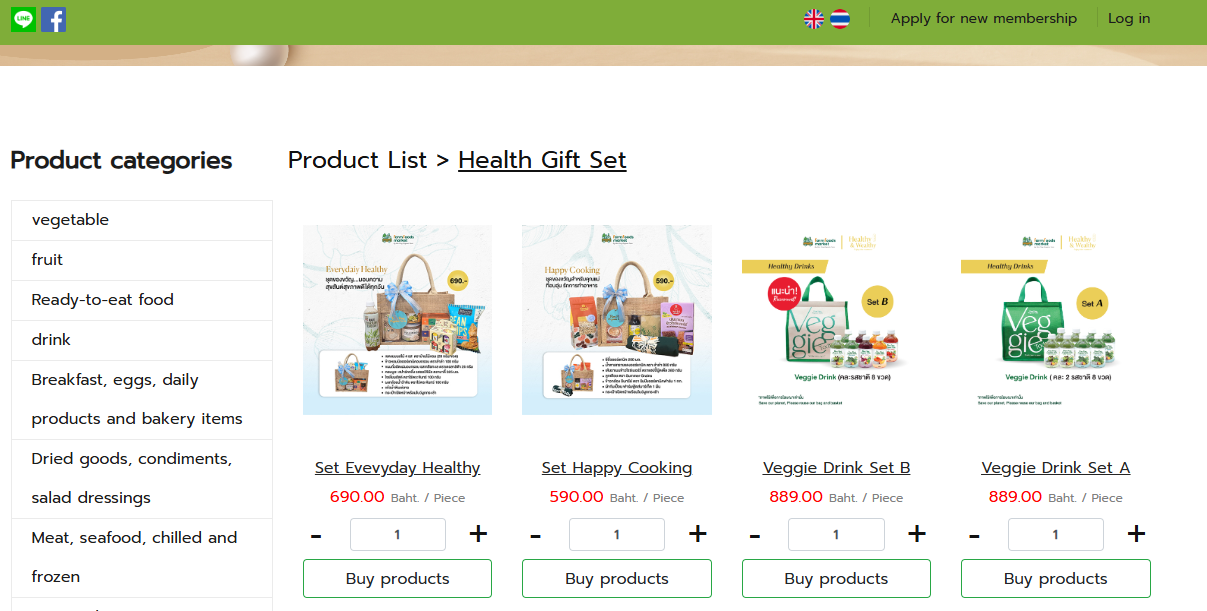
What We Did for Farm Food Market:
- Designed an intuitive UI/UX for the catalogue
- Customised product listings and category layouts
- Optimised the checkout flow for smoother purchases
Key Takeaways:
- Shopify’s category management makes browsing multiple product types seamless
- Advanced filtering features may require third-party apps
Standout Features of Shopify:
- Smooth and secure checkout process
- Clear category navigation for easy browsing
- Easy integration with payment gateways
Shopify Limitations:
- Reliance on external apps for advanced filtering
- Limited flexibility for backend customisation
Insights:
For stores with multiple product types, Shopify offers a robust frontend experience. However, complex filtering or analytics needs may require additional apps, increasing costs.
Project 2: Happy Detox Tea
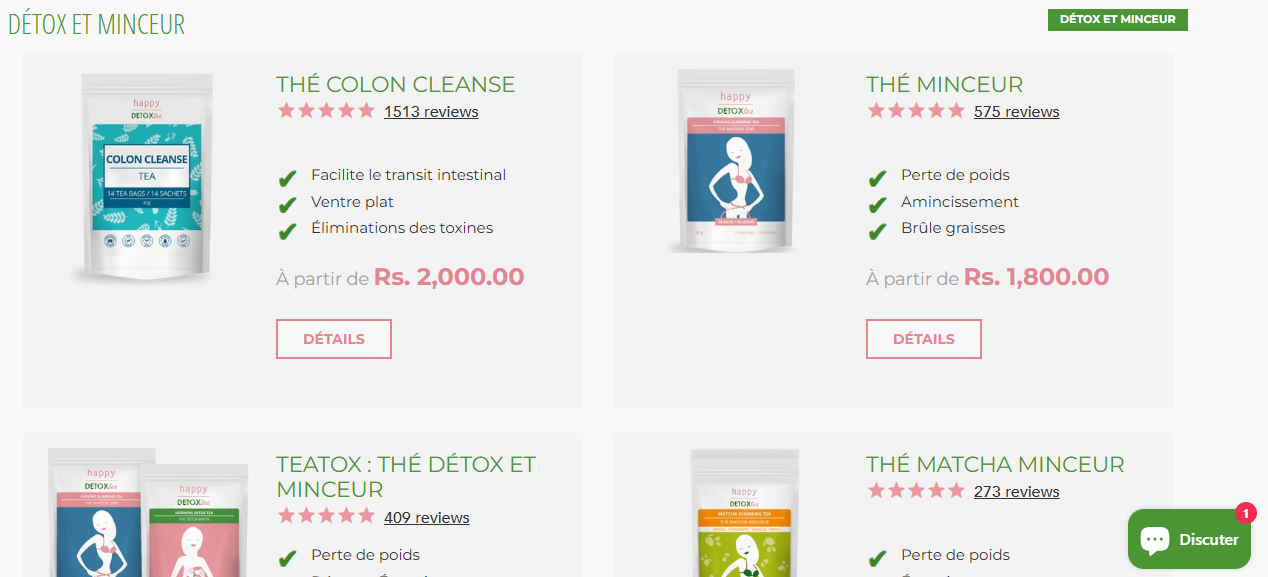
What We Did for Happy Detox Tea:
- Integrated multi-currency support for international customers
- Customised branding and store design
- Optimised UX for global buyers
Key Takeaways
- Shopify handles international selling well, though multi-language support requires apps
- Themes provide strong branding and design flexibility
Standout Features:
- Global-friendly checkout system
- Flexible design for lifestyle and health brands
- Smooth product browsing experience
Challenges:
- Multi-language setup needed additional apps
- Some features are limited without paid integrations
Insights:
For brands selling globally, Shopify simplifies payments and checkout, but full localisation may require investment in apps. It’s ideal for lifestyle or wellness products where branding and presentation matter.
Project 3: Mountrigi

What We Did:
- Customised Shopify themes aligned with premium branding
- Designed storytelling-focused product pages
- Optimised product presentation and category layouts
Key Takeaways:
- Shopify works well for lifestyle and premium brands
- Backend reporting tools are limited
Standout Features:
- Strong visual storytelling capability
- High-quality product presentation
- Easy product management
Challenges:
- Advanced backend reporting is unavailable without apps
- Some customisations require paid apps
Insights:
Shopify excels at creating a visually compelling experience for premium brands. It allows for clean product storytelling but may need extra apps for detailed analytics or reporting.
Project 4: Yacht Gurus
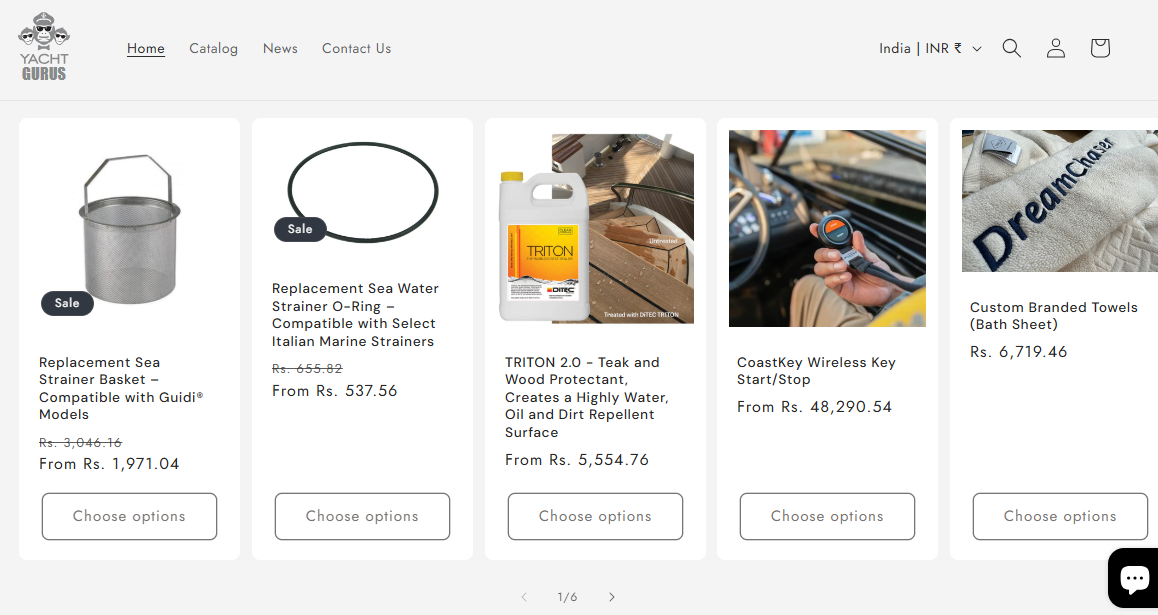
What We Did:
- Structured a large product catalogue for ease of navigation
- Designed store layout and integrated Shopify features
- Optimised checkout and product presentation
Key Takeaways:
- Shopify can handle large catalogues, but bulk management is more labour-intensive
- Frontend performance remains smooth, even with many products
Standout Features:
- Handles large catalogues effectively
- Clean navigation and fast user experience
- Reliable hosting
Challenges:
- Bulk uploads require extra effort and apps
- Backend customisation limitations for large catalogues
Insights:
Even with large inventories, Shopify delivers a seamless frontend experience. However, managing hundreds or thousands of products often necessitates additional tools or integrations.
Is Shopify Suitable for Your Business?
Who It’s Best For:
- Small to medium businesses seeking a fast, professional store setup
- Lifestyle, health, or premium brands that rely on visual storytelling
- Businesses selling internationally with multi-currency needs
Considerations:
- Dependence on apps for advanced features may increase cost
- Backend customisation is limited for complex operations
- Bulk product management may require additional effort
Verdict:
Shopify is highly suitable for most e-commerce businesses, especially those focused on brand experience, international selling, and ease of use. Startups and growing brands benefit from fast deployment and scalable design.
WooCommerce (WordPress): Flexible, SEO-Friendly, and Content-Driven
WooCommerce is one of the most widely used e-commerce solutions, especially for businesses that want complete control over customisation and content. Built as a WordPress plugin, it gives businesses the power to combine strong product management with SEO-friendly publishing tools.
From small startups to growing brands, WooCommerce works best when businesses need flexibility and want their e-commerce site to be more than just a store.
Here’s how we’ve used WooCommerce across different industries:
Project 1: Silynx
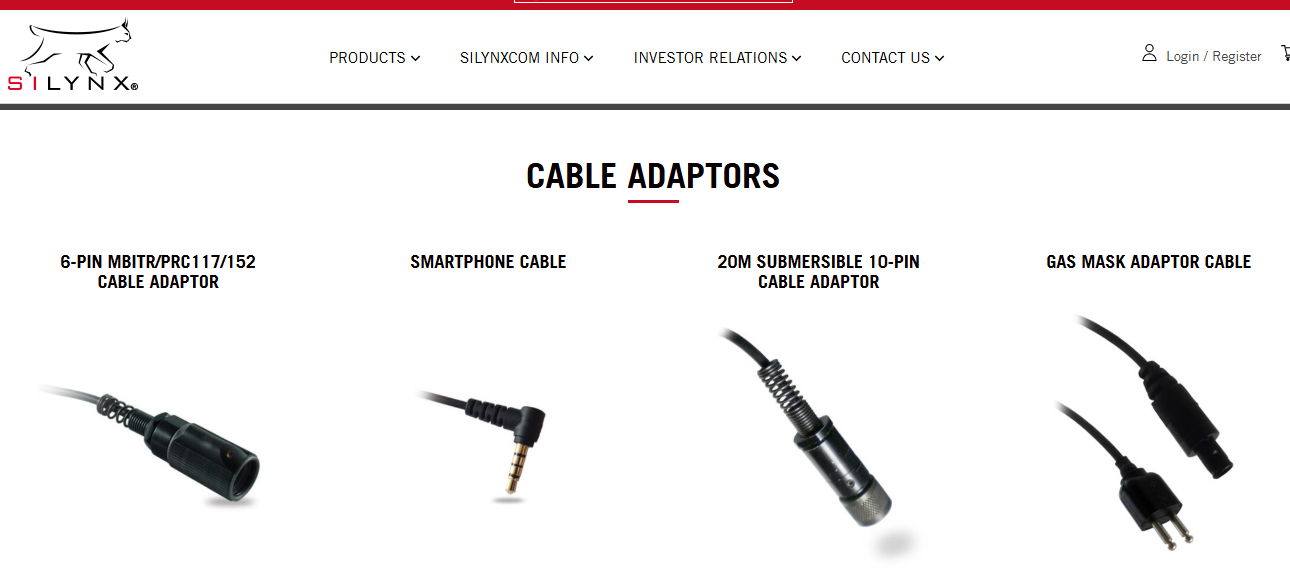
What We Did:
- Developed a high-performance WooCommerce store for tactical communication products
- Integrated custom product categories for different equipment types
- Enhanced the user journey with detailed product descriptions and specs
Key Takeaways:
- WooCommerce is ideal for technical or niche products that need detailed content
- WordPress integration ensures better visibility through SEO and blogs
Standout Features:
- Flexible product categorisation for technical buyers
- Strong SEO support for content-heavy industries
- Customizable product page layouts
Challenges:
- Advanced inventory management required additional plugins
- Scaling performance for a wide catalogue needed optimization
Project 2: TenCapital
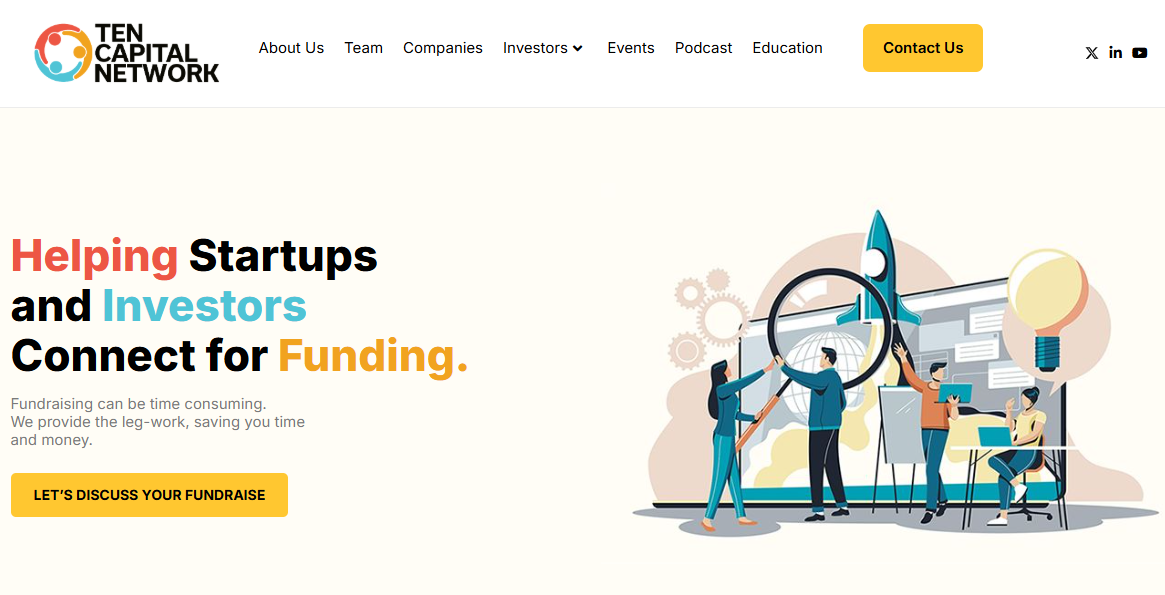
What We Did:
- Built a WooCommerce site designed for financial and investment services
- Customised layouts for service-based offerings rather than only physical products
- Added clear call-to-action elements to guide conversions
Key Takeaways / Lessons Learned:
- WooCommerce is not limited to product sales it works well for service-driven businesses, too
- Content flexibility helps educate potential clients and build trust
Standout Features:
- Easy integration with service booking tools
- Flexible design suitable for professional branding
- Strong support for lead generation forms
Challenges:
- Required extra plugins for complex service workflows
- Balancing content and commerce needed careful design choices
Project 4: Masri Orthodontics

What We Did:
- Created a WooCommerce-powered website for a dental practice
- Integrated appointment booking features alongside product sales (orthodontic care kits)
- Built user-friendly layouts for patients and families
Key Takeaways:
- WooCommerce can combine products and services on the same platform
- Great choice for healthcare or local businesses wanting a mix of e-commerce and bookings
Standout Features:
- Appointment scheduling integration
- Clean and professional UI for medical branding
- Flexible design for local SEO benefits
Challenges:
- Required plugins for booking and calendar management
- Medical compliance considerations added extra steps
Project 5: Breast Balm
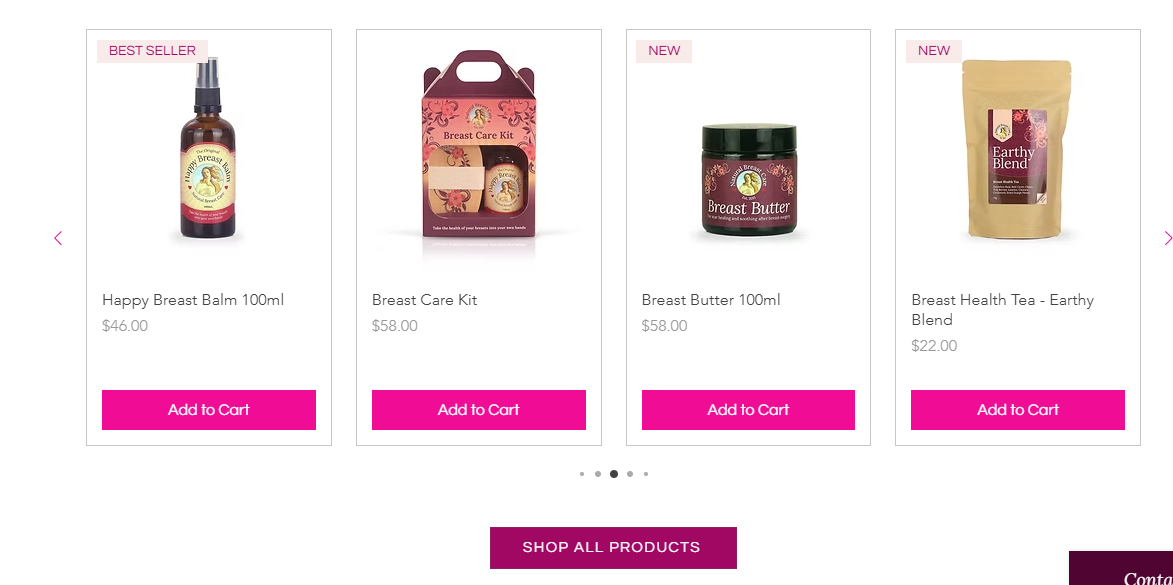
What We Did:
- Developed a WooCommerce store for a health and wellness product brand
- Focused on clear storytelling to build credibility and trust
- Integrated smooth checkout for a single-product focus
Key Takeaways / Lessons Learned:
- WooCommerce is effective for niche wellness brands with a single flagship product
- Content-driven pages help educate buyers and build brand authority
Standout Features:
- Clear, single-product sales funnel
- Strong branding through WordPress content features
- Easy integration of payment gateways
Challenges:
- Niche products require extra effort in trust-building
- Marketing plugins needed for growth campaigns
Is WooCommerce Suitable for Other Businesses?
Who It’s Best For:
- Businesses that want full control over customisation and SEO
- Brands relying heavily on content marketing alongside products
- Companies selling both products and services
Considerations / Challenges:
- Plugin dependency for advanced features
- Requires regular updates and maintenance compared to hosted solutions
- Performance optimisation needed for large catalogues
Verdict:
WooCommerce is an excellent choice for businesses that want flexibility, control, and the power of WordPress content tools.
From niche wellness products and eco-friendly goods to service-driven businesses and luxury brands, WooCommerce adapts across industries.
While it requires more maintenance than hosted platforms, it rewards businesses with unmatched customisation and SEO potential.
Magento: Powerful, Scalable, and Fully Customizable
Magento is a robust platform designed for businesses with larger product catalogues, complex requirements, or rapid scaling needs.
Unlike hosted solutions, Magento offers complete control over backend logic, integrations, and design flexibility.
It’s particularly suited for mid-to-large businesses that want tailored features and are ready to invest in custom development.
Here’s how we’ve implemented Magento for different industries and businesses:
Project 1: Illuminated Mirrors
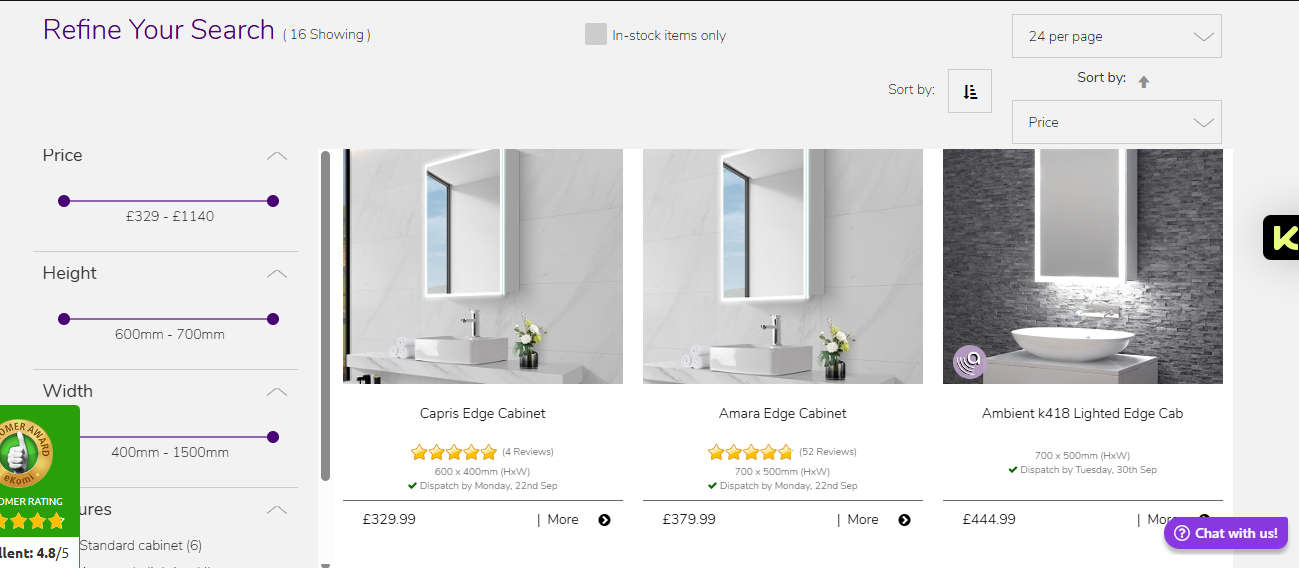
What We Did:
- Developed a custom Magento store for a wide range of illuminated mirror products
- Designed advanced filtering and categorisation for easy browsing
- Optimised product presentation with detailed descriptions and specifications
Key Takeaways / Lessons Learned:
- Magento’s strength lies in handling large, detailed product catalogues
- Custom filters improve user experience for shoppers with specific needs
Standout Features:
- Advanced product filtering (size, style, lighting options)
- Clean UI with strong visual emphasis
- Smooth checkout for diverse product ranges
Challenges:
- Setting up required more development time compared to simpler platforms
- Ongoing maintenance was necessary to ensure performance
Project 2: Rustique Home
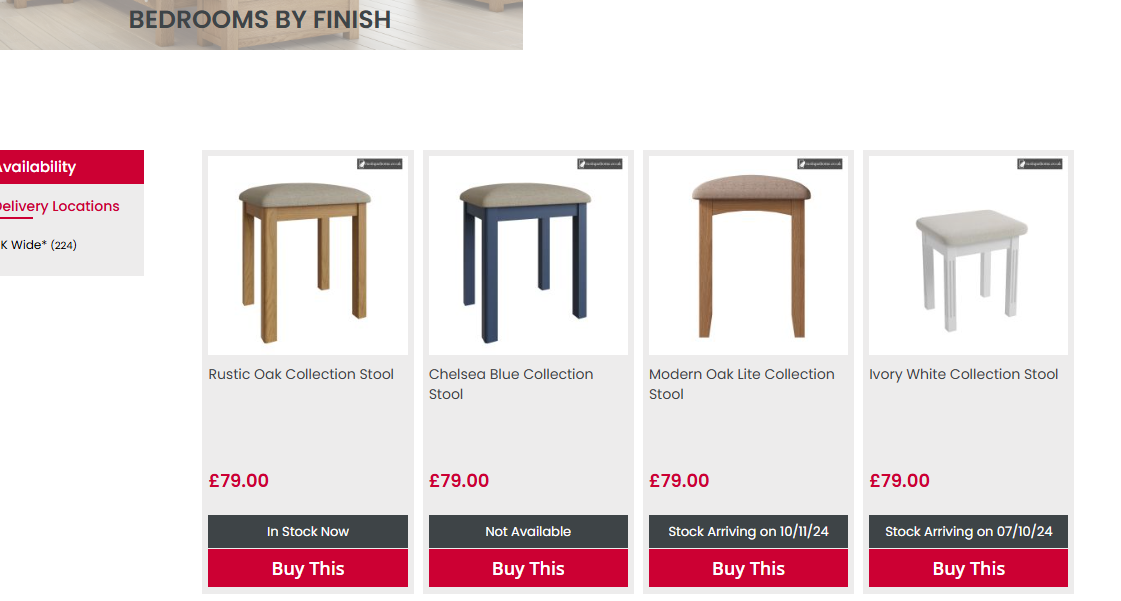
What We Did:
- Created a Magento store for rustic home décor and furniture
- Customised layouts to highlight product aesthetics and lifestyle appeal
- Integrated smooth order management for mid-sized product catalogues
Key Takeaways:
- Magento allows personalised layouts that showcase lifestyle branding effectively
- Ideal for furniture and décor businesses needing both visuals and product depth
Standout Features:
- Custom layouts for large product images
- Advanced inventory and order management
- Reliable platform for mid-sized catalogues
Challenges:
- Design customisation took more time compared to template-driven platforms
- Required additional development to maintain mobile speed
Project 3: Light Mirrors
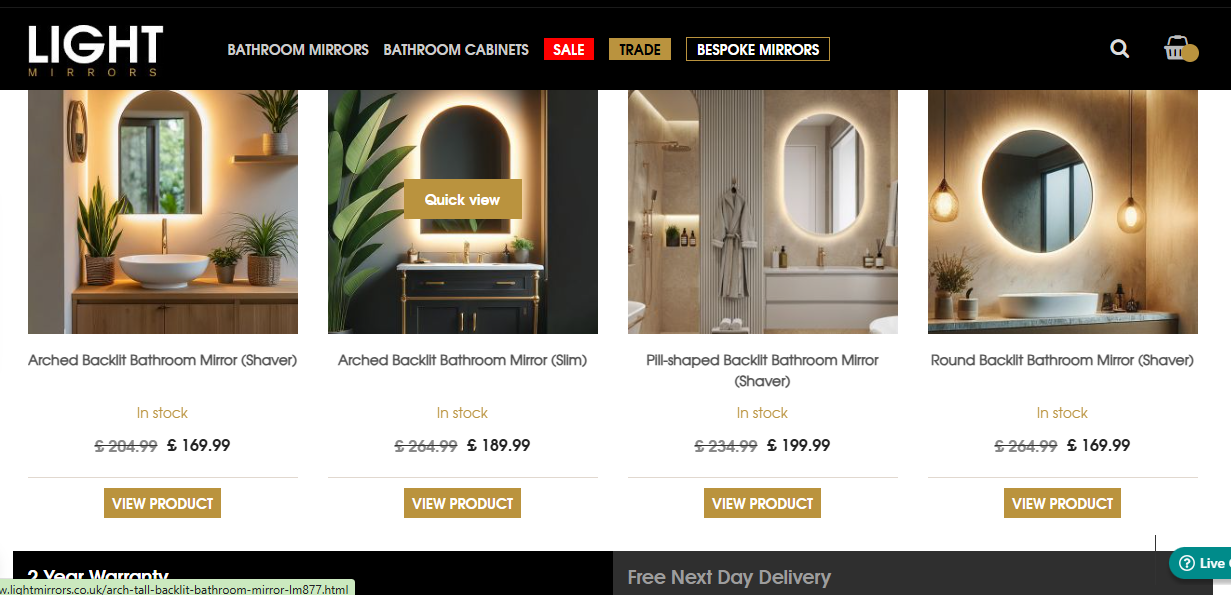
What We Did:
- Designed a premium Magento site for a specialised mirror brand
- Built advanced filtering to sort products by design, size, and features
- Focused on a polished, high-end shopping experience
Key Takeaways / Lessons Learned:
- Magento supports premium branding with high-quality product visuals
- Ideal for specialised products requiring detailed comparisons
Standout Features:
- Polished product presentation
- Advanced search and filtering tools
- Scalable backend for future catalogue growth
Challenges:
- Heavy visuals require performance optimisation
- Custom backend tweaks increased development time
Project 4: Lickerie
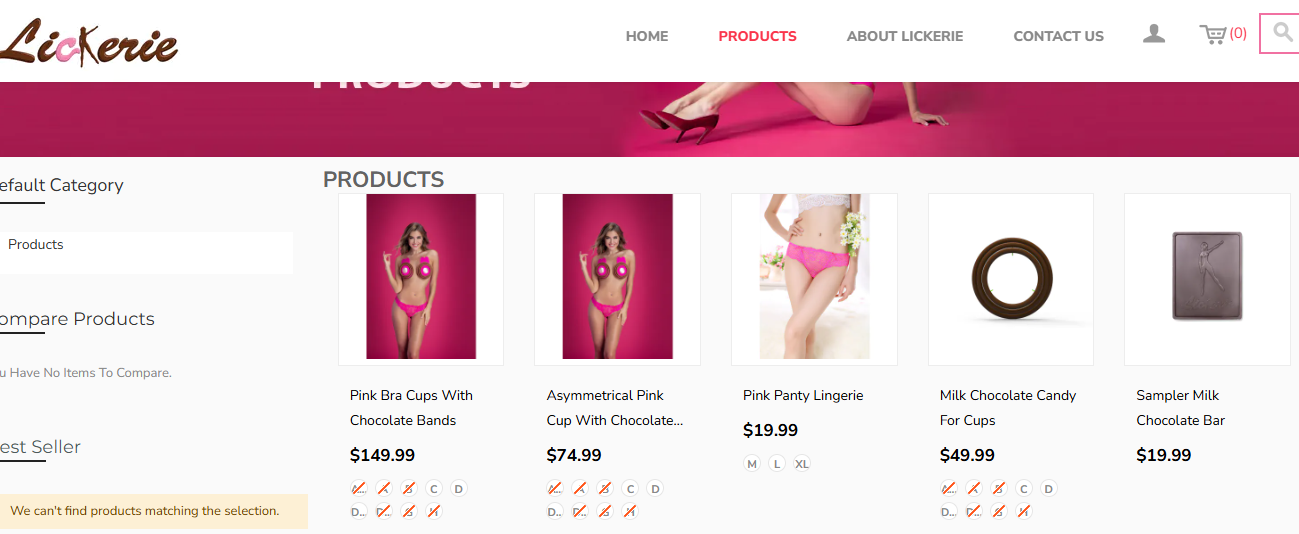
What We Did:
- Developed a Magento store for a luxury lingerie brand
- Focused on elegant, storytelling-driven design for premium positioning
- Integrated secure checkout and multiple payment gateways
Key Takeaways / Lessons Learned:
- Magento is ideal for luxury e-commerce, where branding and exclusivity matter
- Custom design features build a stronger brand presence
Standout Features:
- Premium-focused UI/UX
- Multi-payment integration for global customers
- Storytelling-friendly design
Challenges:
- High customisation requires careful development planning
- Maintenance costs were higher than those of hosted platforms
Is Magento Suitable for Other Businesses?
Who It’s Best For:
- Medium to large businesses with complex product catalogues
- Brands expanding globally with multi-currency and multi-language needs
- Companies requiring full customisation of the backend and frontend
Considerations / Challenges:
- Higher development and maintenance costs than hosted platforms
- Requires technical expertise to set up and manage
- Longer deployment timelines for custom features
Verdict:
Magento is the go-to choice for businesses needing scalability, advanced customisation, and global reach. From luxury brands and lifestyle products to large catalogues like furniture and mirrors, Magento adapts to complex needs with ease. While it requires more investment in setup and maintenance, the payoff is a powerful, future-proof e-commerce solution.
Wix: Simple, Visual, and Service-Oriented
Wix is a beginner-friendly, design-focused platform that works best for small businesses, professionals, and service-based industries.
While it doesn’t offer the same scalability as Shopify, WooCommerce, or Magento, it excels at delivering visually appealing websites with easy-to-use tools.
Wix is particularly suited for businesses that want to establish an online presence quickly without heavy technical requirements.
Project: Ashley Park Dental
What We Did:
- Developed a Wix website for a dental practice, focusing on both services and patient engagement
- Designed a clean, professional interface aligned with healthcare branding
- Integrated appointment booking tools for patient convenience
Key Takeaways / Lessons Learned:
- Wix is highly effective for service-based businesses like dental practices
- Easy-to-use templates make it possible to create professional designs without complex coding
- Ideal for businesses that need more informational content than product-heavy catalogues
Standout Features:
- Appointment booking integration for patients
- Simple, professional layouts suitable for the medical and dental industries
- Mobile-friendly design that works for local customers on the go
Challenges:
- Limited backend flexibility for advanced features
- E-commerce functionality is basic compared to other platforms
- Custom integrations are often not possible without external workarounds
Is Wix Suitable for Other Businesses?
Who It’s Best For:
- Service-based businesses (healthcare, wellness, salons, local professionals)
- Small businesses or startups needing a quick and affordable web presence
- Brands prioritising visual design over advanced e-commerce
Considerations / Challenges:
- Limited scalability for growing product catalogues
- Not suitable for complex e-commerce workflows
- Advanced integrations and features may be difficult to implement
Verdict:
Wix is a great option for small, service-oriented businesses that need a professional online presence with minimal setup.
Ashley Park Dental provided a reliable, user-friendly solution with appointment booking and a clean design.
While it lacks the power of Shopify, WooCommerce, or Magento, Wix remains a solid choice for businesses prioritising speed, simplicity, and affordability.
BigCommerce: Hosted, Reliable, and Marketing-Ready
BigCommerce is a powerful hosted e-commerce solution that combines ease of use with strong built-in features.
It’s particularly good for small to medium businesses that want to sell across multiple channels (like Amazon, eBay, or social media) without relying too heavily on third-party apps.
With reliable hosting and built-in SEO tools, it offers a balance between Shopify’s simplicity and Magento’s advanced flexibility.
Project: Armarkat
What We Did:
- Built a BigCommerce store for a pet products brand specialising in cat trees and pet furniture
- Designed product layouts to showcase different product sizes and models
- Integrated clear category structures to help pet owners find the right products easily
Key Takeaways / Lessons Learned:
- BigCommerce works well for niche product businesses with multiple variations
- Strong built-in SEO tools support organic visibility without heavy plugin dependency
- Multi-channel selling capabilities make it easy to expand beyond the website
Standout Features:
- Clear categorisation for different pet product types
- Strong SEO and marketing tools built into the platform
- Scalable backend that supports growth without major technical investment
Challenges:
- Some design customisations were limited compared to WooCommerce or Magento
- Advanced personalisation required third-party tools
- Slightly steeper learning curve compared to Shopify for store owners
Is BigCommerce Suitable for Other Businesses?
Who It’s Best For:
- Small to medium businesses needing a reliable hosted platform
- Brands selling across multiple channels (Amazon, eBay, social media)
- Businesses wanting strong SEO without relying on plugins
Considerations / Challenges:
- Limited design flexibility compared to fully customizable platforms
- Advanced personalisation features often require integrations
- Pricing can increase with advanced features as the business grows
Verdict:
BigCommerce is a smart choice for businesses that want a hosted solution with strong marketing and multi-channel selling out of the box.
For Armarkat, it provided a stable, SEO-friendly platform to showcase pet products while preparing the brand for growth.
It bridges the gap between ease of use and scalability, making it a great fit for businesses that want long-term reliability without the complexity of Magento or WooCommerce.
Quick Comparison of E-Commerce Platforms
After reviewing these real-world examples, here’s how the platforms compare:
| Platform | Ease of Use | Scalability | Customization | Multi-Currency / Global Selling | Maintenance | Ideal Business Size |
|---|---|---|---|---|---|---|
| Shopify | Very High | Medium-High | Medium | Hig | Low | Small-Medium |
| WooCommerce | Medium | High | Very High | High (with plugins) | Medium | Small-Medium |
| Magento | Low | Very High | Very High | High | High | Medium-Large |
| Wix | Very High | Low | Low | Medium | Low | Small |
| BigCommerce | High | Medium | Medium | High | Low | Small-Medium |
Shopify is all about speed, design, and reliability. It’s best for startups and growing businesses that want to launch quickly with minimal hassle. However, advanced features often come at the cost of installing multiple apps
WooCommerce gives you maximum control if you’re comfortable with WordPress. It’s especially valuable for content-heavy businesses that rely on blogs, SEO, and storytelling to drive sales.
Magento is the powerhouse. If you’re running a large store with thousands of SKUs, multiple regions, or complex backend workflows, Magento can handle it—but only if you’re ready to invest in custom development and technical expertise.
Wix shines for service providers and professionals who care more about a polished web presence than large-scale e-commerce. It’s not built for heavy selling, but it’s perfect for dentists, salons, or small local businesses.
BigCommerce sits in the middle. It offers more built-in features than Shopify and fewer technical hurdles than Magento, making it a strong contender for brands that want scalability without heavy custom coding.
Wrapping Up
Choosing the right e-commerce platform isn’t just about ticking off features on a checklist; it’s about aligning the technology with your business goals, product range, and long-term growth plans.
If you’re launching a new brand and want to go live quickly, Shopify is often the safest bet thanks to its speed, simplicity, and scalability.
Businesses that rely heavily on content marketing and SEO, or that need to combine services with product sales, will find WooCommerce a natural choice because of its flexibility and seamless integration with WordPress.
For larger enterprises with complex needs and global ambitions, Magento offers the power to customise every detail, making it an excellent option for businesses that demand full control over their online store.
On the other hand, service-driven businesses such as clinics or salons, where e-commerce is not the central focus, often benefit from the simplicity and design-oriented features of Wix.
Finally, for brands seeking a hosted solution with strong built-in marketing tools and the ability to sell across multiple channels, BigCommerce provides a reliable and scalable platform.
No matter which path you take, the lessons drawn from real-world projects show that the right platform can save time, reduce costs, and support growth at every stage.
By understanding each platform’s strengths, challenges, and industry use cases, you can make a confident decision and build an online store designed not only for today’s needs but also for long-term success.

With a Bachelor’s in Commerce and 15 years of experience in Ecommerce SEO and Shopify Development, I bring extensive expertise to the digital field. As Managing Partner at WillShall Consulting, I lead a team delivering exceptional Digital Marketing, Web Development, and Web Designing services. My passion for innovation and commitment to excellence help businesses thrive in the digital age.





 Call Us
Call Us Email Us
Email Us Video Call
Video Call

 Our Locations
Our Locations